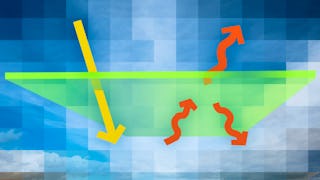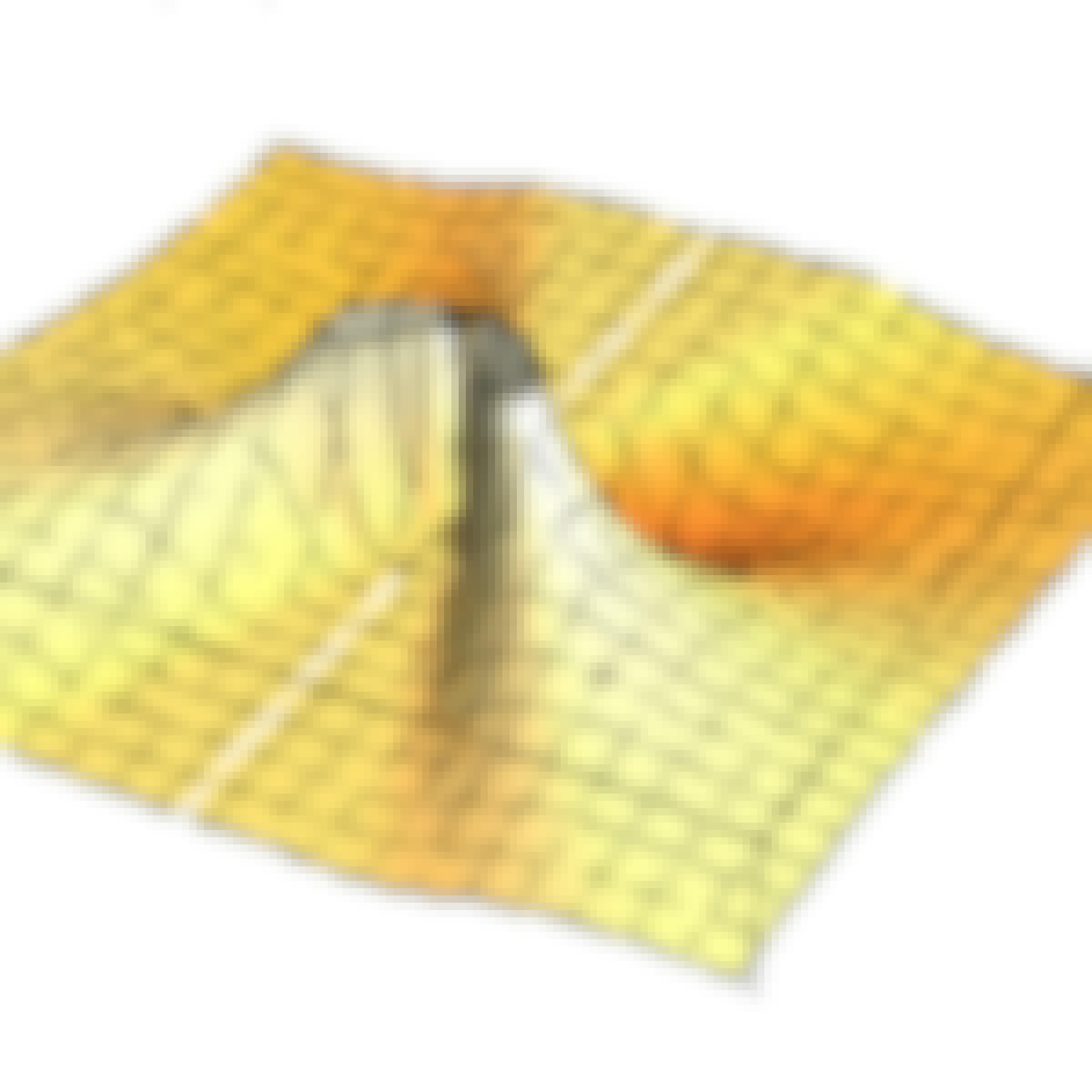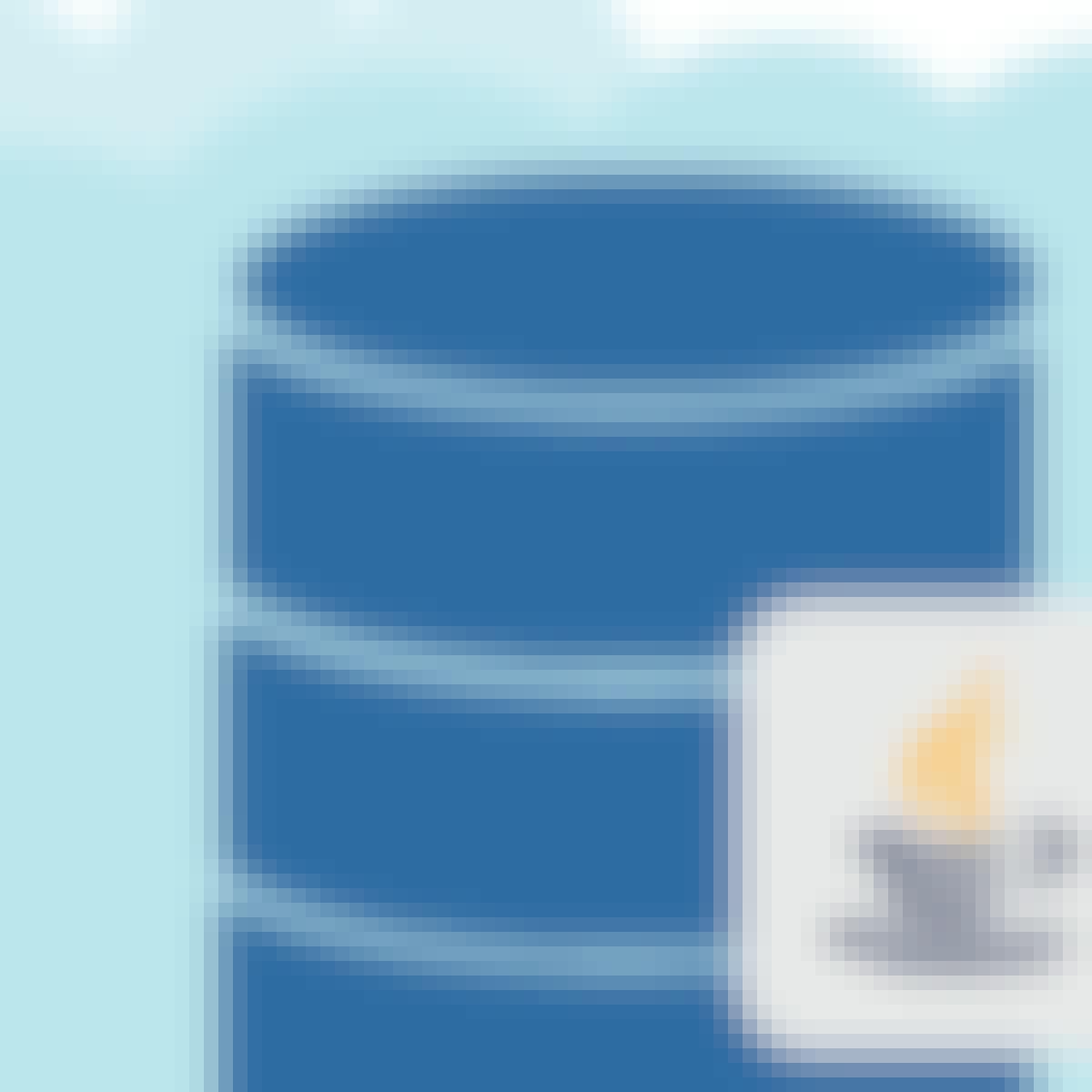- Browse
- Fluid Mechanics
Fluid Mechanics Courses
Fluid mechanics courses can help you learn the principles of fluid behavior, pressure dynamics, and flow analysis. You can build skills in computational fluid dynamics, experimental techniques, and the application of Bernoulli's equation to real-world problems. Many courses introduce tools like MATLAB and ANSYS, which are used for simulating fluid flow and analyzing complex systems, allowing you to visualize and solve practical challenges in engineering and environmental contexts.
Popular Fluid Mechanics Courses and Certifications
 Status: Free TrialFree TrialS
Status: Free TrialFree TrialSScrimba
Skills you'll gain: Responsive Web Design, Cascading Style Sheets (CSS), HTML and CSS, Web Design, Typography, Web Design and Development, Front-End Web Development, User Interface (UI), Web Development
4.5·Rating, 4.5 out of 5 stars42 reviewsIntermediate · Course · 1 - 4 Weeks
 Status: Free TrialFree TrialV
Status: Free TrialFree TrialVVanderbilt University
Skills you'll gain: SQL, Generative AI, Data Visualization, Database Design, Interactive Data Visualization, Query Languages, Data Capture, Data Analysis, Debugging, ChatGPT, Prompt Engineering, Databases, Data Validation
4.7·Rating, 4.7 out of 5 stars75 reviewsBeginner · Course · 1 - 4 Weeks
 Status: PreviewPreviewT
Status: PreviewPreviewTThe University of Chicago
Skills you'll gain: Climate Change Programs, Mathematical Modeling, NumPy, Physical Science, Simulation and Simulation Software, Environmental Science, Scientific Visualization, Matplotlib, Simulations, Numerical Analysis, Differential Equations, Mechanics
4.2·Rating, 4.2 out of 5 stars57 reviewsMixed · Course · 1 - 3 Months
 Status: Free TrialFree TrialR
Status: Free TrialFree TrialRRice University
Skills you'll gain: Physics, Engineering Analysis, Mechanics, electromagnetics, Engineering Calculations, Vibrations, Materials science, Applied Mathematics, Mathematical Modeling, Geometry, Physical Science, Trigonometry, Calculus, Advanced Mathematics, Linear Algebra, Differential Equations, Algebra, Mathematical Theory & Analysis, Problem Solving, Integral Calculus
4.8·Rating, 4.8 out of 5 stars19 reviewsIntermediate · Specialization · 1 - 3 Months
 Status: Free TrialFree TrialG
Status: Free TrialFree TrialGGoogle
Skills you'll gain: User Experience Design, Information Architecture, Storyboarding, Wireframing, User Story, UI/UX Research, User Research, Adobe XD, Usability Testing, Figma (Design Software), Design Reviews, User Interface and User Experience (UI/UX) Design, User Centered Design, Ideation, Design Thinking, Presentations, Persona (User Experience), Web Design, Research Design, Usability
4.7·Rating, 4.7 out of 5 stars168 reviewsBeginner · Professional Certificate · 3 - 6 Months
 Status: Free TrialFree TrialR
Status: Free TrialFree TrialRRice University
Skills you'll gain: Engineering Analysis, Physics, Mechanics, Engineering Calculations, Vibrations, Applied Mathematics, Mathematical Modeling, Trigonometry, Advanced Mathematics, Differential Equations, Calculus, Physical Science, Problem Solving, Integral Calculus, Derivatives
4.8·Rating, 4.8 out of 5 stars16 reviewsIntermediate · Course · 1 - 4 Weeks

Skills you'll gain: Figma (Design Software), Responsive Web Design, Design, Web Design, User Interface (UI) Design, Wireframing, User Experience, User Experience Design, Typography, UI Components, Color Theory, Mockups, Web Development Tools
4.3·Rating, 4.3 out of 5 stars31 reviewsIntermediate · Course · 1 - 3 Months
 Status: Free TrialFree Trial
Status: Free TrialFree TrialSkills you'll gain: Adobe XD, Prototyping, User Experience Design, Usability Testing, UI/UX Research, Figma (Design Software), Presentations, Responsive Web Design, Information Architecture, User Story, Storyboarding, User Research, Design, User Interface and User Experience (UI/UX) Design, Web Design, Persona (User Experience), User Centered Design, Data Ethics, Design Reviews, Usability
4.8·Rating, 4.8 out of 5 stars147 reviewsBeginner · Professional Certificate · 3 - 6 Months
 Status: PreviewPreviewT
Status: PreviewPreviewTThe University of Edinburgh
Skills you'll gain: Physics, Laboratory Research, Mechanics, Experimentation, Mathematical Modeling, electromagnetics, General Science and Research, Applied Mathematics
4.8·Rating, 4.8 out of 5 stars26 reviewsIntermediate · Course · 1 - 3 Months
 Status: Free TrialFree TrialU
Status: Free TrialFree TrialUUniversity of Colorado Boulder
Skills you'll gain: Numerical Analysis, Applied Mathematics, Mathematical Modeling, Differential Equations, Physics
Build toward a degree
4.7·Rating, 4.7 out of 5 stars13 reviewsIntermediate · Course · 1 - 4 Weeks
 Status: PreviewPreviewÉ
Status: PreviewPreviewÉÉcole Polytechnique Fédérale de Lausanne
Skills you'll gain: Structural Analysis, Construction, Structural Engineering, Architectural Engineering, Civil Engineering, Materials science, Engineering Analysis, Engineering Calculations, Safety Assurance, Mechanics, Physics
4.8·Rating, 4.8 out of 5 stars49 reviewsBeginner · Course · 1 - 3 Months
 Status: Free TrialFree TrialL
Status: Free TrialFree TrialLLearnQuest
Skills you'll gain: Stored Procedure, PL/SQL, Relational Databases, Object-Relational Mapping, SQL, Data Access, Java Platform Enterprise Edition (J2EE), Databases, Data Persistence, Java, Data Manipulation, Data Mapping, Java Programming, JUnit, Object Oriented Programming (OOP), Query Languages, Database Management, Data Integrity, Database Systems, Enterprise Application Management
4.7·Rating, 4.7 out of 5 stars56 reviewsBeginner · Specialization · 1 - 3 Months
In summary, here are 10 of our most popular fluid mechanics courses
- Learn Tailwind CSS: Scrimba
- Chat with Your Data: Generative AI-Powered SQL Data Analysis: Vanderbilt University
- Global Warming II: Create Your Own Models in Python: The University of Chicago
- Physics of Waves and Optics: Rice University
- Google UX Design: Google
- Physics of Oscillators and Waves: Rice University
- Figma for UI/UX: Master Web Design in Figma: Packt
- تصميم تجربة المستخدم من Google: Google
- The Discovery of the Higgs Boson: The University of Edinburgh
- Approximation Methods: University of Colorado Boulder










